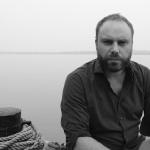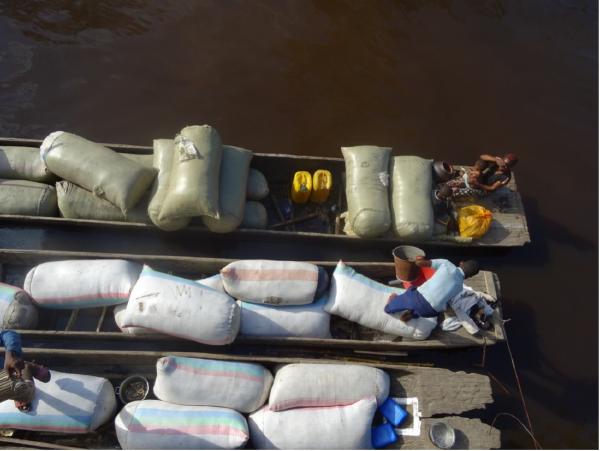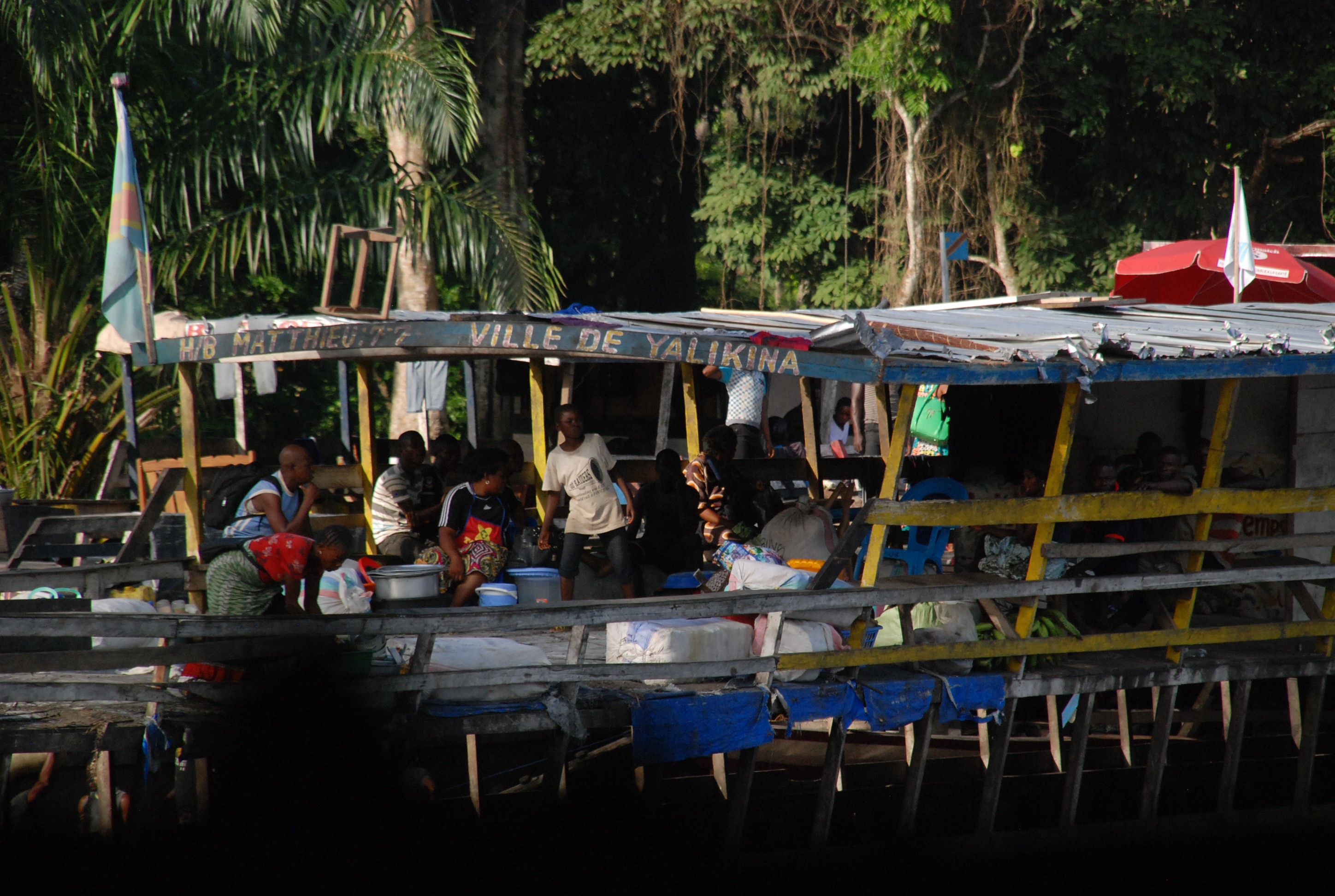Dans la même rubrique

Maître de conférences
Localisation :
ULB - Centre d'Anthropologie Culturelle
Institut de sociologie
Avenue Jeanne 44
1050 Bruxelles
Belgique
Local : S13 208
Email : Peter.Lambertz@ulb.be
BIO :
Peter est titulaire d'un doctorat en études africaines/anthropologie/études religieuses (Leipzig / Utrecht), d'une licence en histoire (ULB) et d'une maîtrise en Global Studies (Leipzig / Stellenbosch / Wroclaw).
Il est actuellement maître de conférences (suppléant) au Centre d'anthropologie culturelle de l'ULB Bruxelles, où il enseigne l'anthropologie de l'environnement et du développement.
Peter est également chercheur postdoctoral au sein du groupe de recherche Foragency à la VUB Bruxelles (p.i. Benoît Henriet), et professeur visiteur au département d'anthropologie de l'Université de Kisangani (UNIKIS) où il enseigne l’anthropologie du développement et les méthodes de recherche en anthropologie. Il a occupé des postes postdoctoraux au sein du projet ERC Banturivers (p.i. Birgit Ricquier) dont il a coordonné les recherches collaboratives de terrain autour des techniques de pêche en province de la Tshopo (RD Congo) ; au sein du programme transnational de recherche « la bureaucratisation des sociétés africaines » avec l’Institut Historique Allemand de Paris (DHIP) et le Centre de recherches sur les politiques sociales de lUCAD Dakar ; à IAAW (Institut für Asien- und Afrikawissenschaften) de la Université Humboldt de Berlin (boursier de la Gerda Henkel Stiftung) ; à la KU Leuven (boursier Marie-Curie).
Enseignement
Anthropologie de l’environnement (Q1) - suppléance Daou Véronique Joiris
Anthropologie du développement (Q2) - suppléance Daou Véronique Joiris
Présentation des recherches :
Outre son intérêt pour les mouvements religieux, Peter est spécialisé dans les questions de technologie, d'infrastructure et de mobilité fluviale en relation avec les défis environnementaux et de développement en Afrique centrale. Son expertise régionale porte sur les voies navigables de la République démocratique du Congo, en particulier celles autour de Kisangani dans la province de la Tshopo. Depuis 2017, il s'intéresse aux baleinières en bois du Congo et à leur système de transport endogène complexe. S'appuyant sur les rouages complexes de ce qu’il appelle “l'infrastructure artisanale”, ce système offre une mobilité à des millions de personnes tout en permettant aux mégapoles congolaises de se nourrir directement des moyens de subsistance anciennes de la forêt tropicale. Par ailleurs, Peter croit au potentiel transformateur de la recherche ethnographique. Il organise régulièrement des sessions de formation aux méthodes ethnographiques en tant que pratique scientifique collaborative et engagée, à la fois en tant que professeur invité à l'Université de Kisangani (UNIKIS) en République démocratique du Congo, et avec l’initiative de recherche engagée Mobeka qu’il a initié, et qu’il coordonne à Kisangani (voir www.mobeka.org).

Travaux sélectionnés :
- Lambertz, Peter, Rger Angbongi and Emmanuel Makoka (2024), “Les baleinières en République démcratique du Congo: un couteau à double tranchant”, Cahiers des recherches engagées Mbeka / Mobeka Action-Research Papers n° 1, Nv. 2024.
- Lambertz, Peter (frthcoming), “Kobeta tôles: Re-pairing Mobility on Congo’s Inland Waterways”, in: Charline Kopf, Aissatou Mbodj-Pouye, and Wenzel Geissler, Lotte Meinert (eds.), Mending and Repairing acrss Africa.
- Lambertz, Peter, Emmanuel Makka and Victor Yaaya (forthcoming), “Les transprtants de Kisangani. Baleinières, armateurs et développement réel en République Démocratique du Congo”, in: espacestemps.net.
- Lambertz, Peter (2024), &qut;Baleinières’ Riverine Environment and the Materiality of Transport Regulation on Congo's Inland Waterways”, Africa Spectrum 59 (3) : 375-394.
- Lambertz, Peter (2023), &qut;Les baleinières du fleuve Cngo : circulations, transport fluvial et infrastructure artisanale”, Anthrpologie & développement 54: 165 – 182.
- Lambertz, Peter (2021). “Lngola Marche Arrière! Chinese diesel engines n Congo’s inland waterways”. Critical African Studies 15(1), 15–34.
- Lambertz, Peter (2021). “Japanese divine light in Kinshasa transcultural resnance and critique in the religiously multiple city”. Critical Research n Religion 9 (2), 191–208.
- Lambertz, Peter (2021). “Ville de Yaltcha. Ship Names, Home Ports, and Bureaucratic Mimicry on Congo’s Inland Waterways”. Francia. Frschungen zur Westeuropaischen Geschichte 48, p. 493 – 504
- Lambertz, Peter (2020). “Der Elefant ist nch im Raum. Ein Besuch in der neuen Ausstellung des Königlichen Museums für Zentralafrika von Tervuren (Belgien)”, Werkstatt Geschichte 81, p. 173 – 181
- Lambertz, Peter (2020). “Of Ancestrs and Others: Cultural Resonance from Japan among Spiritualists in Kinshasa”, in: Philip Clart and Adam Jones (eds.), Transnatinal Religious Spaces. Religious Organizations and Interactions in Africa, East Asia, and Beyond, Oldenburg: De Gruyter, p. 227 – 244.
- Lambertz, Peter (2020). “The Cleansing Tuch: Spirits, Atmospheres, and At touch ment in a ‘Japanese’ Spiritual Movement in Kinshasa”, in: Hansjörg Dilger, Astrid Bchow, Marian Burchardt, Matthew Wilhelm-Solomon (eds.), Affective Trajectries: Religion and Emotion in African Cityscapes, Durham : Duke University Press, p. 138 – 159.
- Lambertz, Peter (2019), “The Vernacular Bureaucracy f Taxi Logistics at the Airport of Dakar”, Africa Tday 65 (2), p. 51 – 73.
- Lambertz, Peter (2018), Seekers and Things: Spiritual Mvements and Aesthetic Difference in Kinshasa, Oxfrd and New York: Berghahn Books.
- Bachmann, Klaus, Peter Lambertz and Thmas Sparrow-Botero (2013), When Justice Meets Plitics: Independence and Autonomy of Ad Hoc International Criminal Tribunals. Frankfurt am Main : Peter Lang (Studies in Plitical Transition, 2).
- Lambertz, Peter (2016), “Spürbar vernetzt. Japanische Heilkraft in Kngo und die ästhetische Verkettung der Welt”, in: Joel Glasman and Debora Gerstenberger (eds.), Techniken der Glbalisierung. Globalgeschichte meets Akteur-Netzwerk-Theorie, Bielefeld: transcript Verlag, p. 257 – 280.
Domaines d'intérêts :
Transport and Mobility; Material Culture; Infrastructure; Technology; Internal Combustion Engines; Inland Shipping and Navigation; Bureaucracy and Logistics; Religious multiplicity and non-conformism; Aesthetics of Religion; DR Congo.
DR Congo, Congo waterways, Tshopo Province (DRC), Kisangani, Kinshasa, Dakar/Senegal.

